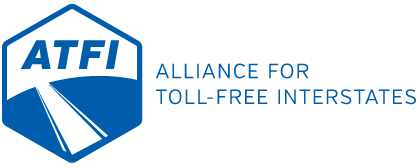As Congress debates funding solutions for our national transportation needs, we will hear many suggestions, but tolls on existing interstates should not even be on the table.
There is little argument about the need for increased, sustainable funding for transportation infrastructure maintenance and construction. According to the Department of Transportation, the Federal Highway Trust Fund will run out of money in September unless funding is increased.
Washington Examiner Senior Political Analyst Michael Barone identified tolls as an appropriate funding source for America's existing interstates. He references a report released last fall that concluded that the best long-term way to fund federal highway maintenance and construction is to place tolls on every mile of interstate throughout the country.
However, of all the potential funding options, placing tolls on existing interstates is the worst because the costs far outweigh any perceived benefits.
First, tolls are an inefficient means of collecting revenue. Even with new collection technology like transponders and automatic payment, the costs to operate, administer, and enforce tolls can be between 12 percent and 20 percent of revenue generated, according to the Washington state Department of Transportation. Compare that to the collection cost of the gas tax, which is approximately 1 percent of revenue collected, and the efficiency gap is clear.
Second, tolls on existing interstate lanes would push interstate traffic onto local roads because some drivers, including truckers, will try to avoid them. These local roads were not built to handle large volumes of traffic and will become congested and deteriorate more rapidly.
This congestion will adversely impact first responders in local communities who rely on local roads for quick emergency response. Hastened deterioration of the local roads will require increased funding for maintenance and repairs. This funding will not come from the proposed tolls, but will be borne by local governments.
When North Carolina studied this issue last year, the state Department of Transportation found that placing tolls on Interstate 95 would mean nearly a third of interstate traffic would have been pushed into local communities and neighborhoods around the toll facilities.
Third, the unrestricted movement of goods and people on the interstate system has allowed goods to get to market more quickly and cheaply than ever before. Tolling the road networks that revolutionized commerce in this country will have significant economic consequences to the supply chain. Tolls act as barriers, slowing down shipments and raising costs – costs that are passed down to the consumer.
As a Virginian, I witnessed the tolling debate firsthand when then-Gov. Bob McDonnell attempted to place tolls on a portion of Interstate 95 last year. He, like many proponents, touted the benefits of tolls by claiming they would generate significant revenue to fund maintenance and repair.
However, the analysis presented by the Virginia Department of Transportation told a different story. The construction and operation of the proposed toll facility would have consumed 38 percent of revenue generated in the first six years and 16 percent of revenue over 25 years.
There are other options that can and should be explored as we attempt to keep the Highway Trust Fund from becoming insolvent. There's no need to keep an unworkable option on the table.
Rex Davis is a Virginia-based small business owner and member of the Alliance for Toll-Free Interstates.

